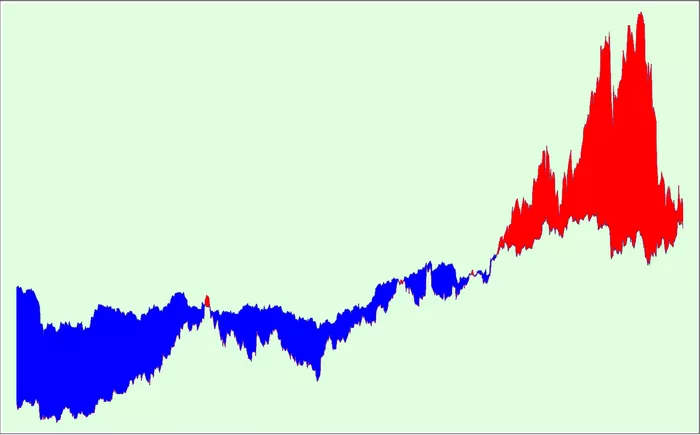The stock market’s performance in the first half of 2024 has been notably robust. The US benchmark S&P 500 index has risen by approximately 15%, and the Nasdaq Composite has seen even greater gains. Across Europe, stock markets are also faring well, including the UK, although France lags behind. In China, the stock market has finally stabilized after a prolonged downturn.
Central banks, according to the annual economic report from the Bank for International Settlements, are cautiously celebrating their success in curbing inflation without derailing the global economy. The report commends policymakers for having “done their job” and “delivered” in supporting a soft economic landing. However, despite these accomplishments, investor sentiment remains fragile.
Market Sentiment and Recent Trends
The bullish momentum in US stocks has recently stalled, with minimal movement over the past two weeks. Nvidia, a key player influencing the broader market, has seen its stock drop by 13% since its peak on June 20. Torsten Slok, chief economist at Apollo, expressed concerns about the S&P 500’s vulnerability, noting that the top 10 companies constitute 35% of the index’s total value but only 23% of its earnings. This significant divergence, he suggests, indicates a record level of optimism about future earnings from a small group of companies.
Uneven Market Performance
While some companies, such as Tesla, have driven market highs with strong performance, the overall market’s gains are heavily skewed towards a few large-cap stocks. Charles Schwab highlighted that only 17% of stocks in the S&P 500 have outperformed the index over the past year, and for the Nasdaq, this figure drops to just 11%. Analysts Liz Ann Sonders and Kevin Gordon noted that the dramatic outperformance of a few top-tier stocks has masked the underlying churn and rotational corrections occurring in the market.
The Influence of AI and Speculative Investing
The surge in stocks related to artificial intelligence, including Nvidia and Super Micro Computer, which have seen gains of 155% and over 200% respectively, underscores the current market trend. Other stocks in the energy and industrial sectors that support AI, such as Vistra and Constellation Energy, are also experiencing significant gains.
A recent paper by Jean-Philippe Bouchaud of Capital Fund Management, titled “Ponzi Funds,” challenges the notion that stock performance is primarily driven by fundamentals like earnings. The paper argues that stocks rise because investors buy into rising trends, creating self-reinforcing feedback loops. This speculative momentum can lead to “Ponzi-like reallocations of capital” that unravel when the underlying securities’ prices correct.
Looking Ahead: Market Risks and Sustainability
The study, which focuses on exchange-traded funds due to the quality of data available, suggests that the principles apply more broadly to stocks. Bouchaud pointed out that the US market has risen because people continue to buy into it, driven by the dominant narrative around AI and other trends.
This line of research is part of a long tradition, but it does not provide a clear answer on what might break the speculative spell or when it might happen. If US stocks do not resume their upward trajectory soon, increasing concerns about market concentration and the unsustainable nature of current trends could diminish investor confidence in the second half of the year.



























